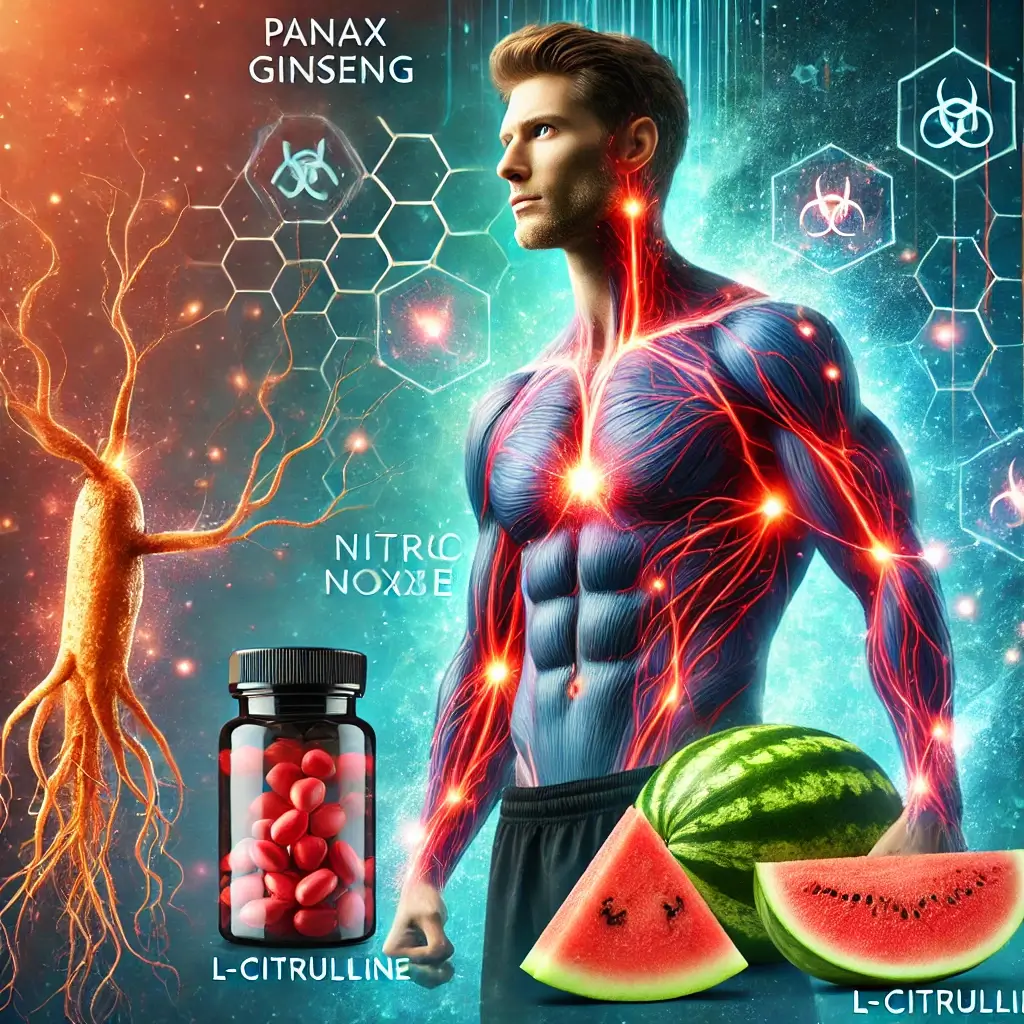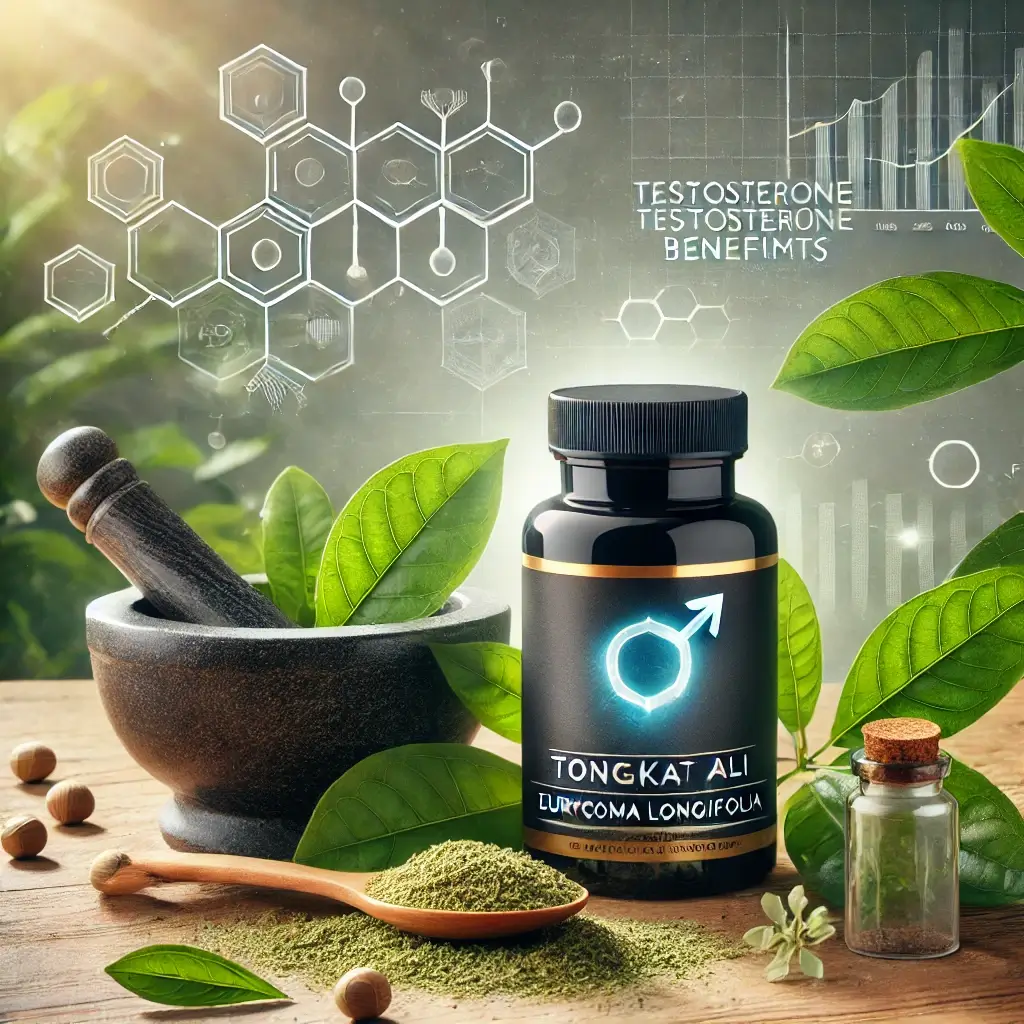Optimize Blood Flow Naturally: The Research-Proven Benefits of Combining Ginseng and L-Citrulline
The Critical Role of Blood Flow in Men’s Overall Health
Maintaining optimal blood flow is pivotal for men’s overall health and well-being, influencing not only cardiovascular fitness but also sexual health and athletic performance. Modern science has unveiled the potential of natural supplements to support vascular health, and among the most promising are Panax ginseng and L-citrulline. Panax ginseng, often referred to as Korean red ginseng, is renowned for its adaptogenic properties and its ability to enhance nitric oxide (NO) production. L-citrulline, an amino acid naturally found in watermelons, acts as a precursor to L-arginine, a compound integral to NO synthesis.
The Powerful Synergy Between Panax Ginseng and L-citrulline
The synergy between these two supplements offers profound benefits for men seeking to improve circulatory health. Panax ginseng supports endothelial function and boosts NO levels, promoting blood vessel relaxation and dilation. L-citrulline, on the other hand, provides the building blocks for sustained NO production, amplifying the effects of ginseng. This combination has garnered attention not only in traditional medicine but also in modern clinical research for its efficacy in addressing conditions such as erectile dysfunction (ED), enhancing athletic endurance, and supporting cardiovascular health. This article delves into the science behind Panax ginseng and L-citrulline, exploring their combined benefits, practical applications, and usage guidelines to help men optimize their health naturally.
Research Backing the Effectiveness of These Natural Supplements
Scientific Evidence Supporting Panax Ginseng and L-Citrulline
How Panax Ginseng Strengthens Your Heart and Blood Vessels
Panax ginseng has been extensively studied for its effects on vascular health. A notable 2008 study published in the International Journal of Impotence Research revealed that Panax ginseng significantly improved erectile function in men with mild to moderate ED. This effect was primarily attributed to its ability to enhance NO synthesis, which relaxes blood vessels and improves blood flow. The active compounds in Panax ginseng, known as ginsenosides, play a crucial role in supporting endothelial function, which is vital for maintaining healthy circulation.
The Stress-Fighting Powers of Ginseng for Vascular Health
Moreover, ginseng’s adaptogenic properties help the body combat stress, which can negatively impact vascular health. By reducing oxidative stress and inflammation, Panax ginseng contributes to the overall improvement of cardiovascular function.
L-Citrulline: The Natural Nitric Oxide Booster
L-citrulline’s role as a precursor to L-arginine makes it a powerful agent for boosting NO production. A 2011 study in Urology demonstrated that L-citrulline supplementation improved erection hardness and durability in men with mild ED. This improvement was linked to enhanced NO levels, which facilitate the dilation of blood vessels and improve circulation.
Beyond Sexual Health: L-Citrulline for Athletes and Overall Circulation
Athletes also benefit from L-citrulline due to its ability to enhance oxygen delivery and reduce muscle fatigue. Its impact on vascular health extends beyond sexual function, making it a versatile supplement for anyone looking to optimize their circulatory system.
The Multiplied Effects When Using Both Supplements Together
When used together, Panax ginseng and L-citrulline create a synergistic effect that enhances NO production through multiple pathways. Ginseng improves endothelial function, ensuring the smooth release of NO, while L-citrulline provides the necessary substrate for its synthesis. This dual action not only supports better blood flow but also addresses underlying issues like endothelial dysfunction and oxidative stress.
How to Use These Supplements Safely and Effectively
Practical Usage and Precautions
Finding Your Optimal Dosage for Maximum Benefits
Recommended Dosages:
Panax ginseng: 200-400 mg daily, standardized to contain 3-5% ginsenosides.
L-citrulline: 2-6 grams daily, preferably in a powdered or capsule form.
When to Take Your Supplements for Best Results
Timing:
For general health, take Panax ginseng in the morning and L-citrulline 30-60 minutes before physical activity. For targeted benefits like improved erectile function, consume this combination 1-2 hours before activity.
Choosing the Right Supplement Forms for Your Needs
Forms:
Both supplements are available in capsule, powder, and liquid extract forms. Ensure that products are sourced from reputable manufacturers and standardized for active ingredients.
Watching Out for Possible Side Effects
Potential Side Effects:
Panax ginseng: Generally well-tolerated but may cause mild insomnia, headache, or gastrointestinal discomfort in some individuals.
L-citrulline: Safe at recommended doses but may lead to mild nausea or stomach discomfort when taken in large quantities. Starting with a lower dose is advisable to assess tolerance.
Consult a healthcare provider before starting this regimen, especially if you have pre-existing medical conditions or are on medications such as blood pressure or blood-thinning drugs.
Natural Solutions for Enhanced Male Health
The combination of Panax ginseng and L-citrulline represents a natural, evidence-based approach to improving blood flow and supporting male health. Whether addressing erectile dysfunction, boosting athletic performance, or enhancing cardiovascular wellness, these supplements offer a holistic solution for men aiming to optimize their vascular health. By incorporating this protocol into a daily wellness routine, individuals can harness the benefits of enhanced circulation and achieve better overall health.
Scientific Sources Supporting These Findings
References
Kim, S. W., et al. (2008). “Effects of Korean red ginseng on erectile dysfunction.” International Journal of Impotence Research.
Cormio, L., et al. (2011). “L-Citrulline supplementation improves erectile function in men with mild erectile dysfunction.” Urology.
Gladwin, M. T., et al. (2004). “Role of nitric oxide in vascular health and disease.” New England Journal of Medicine.













